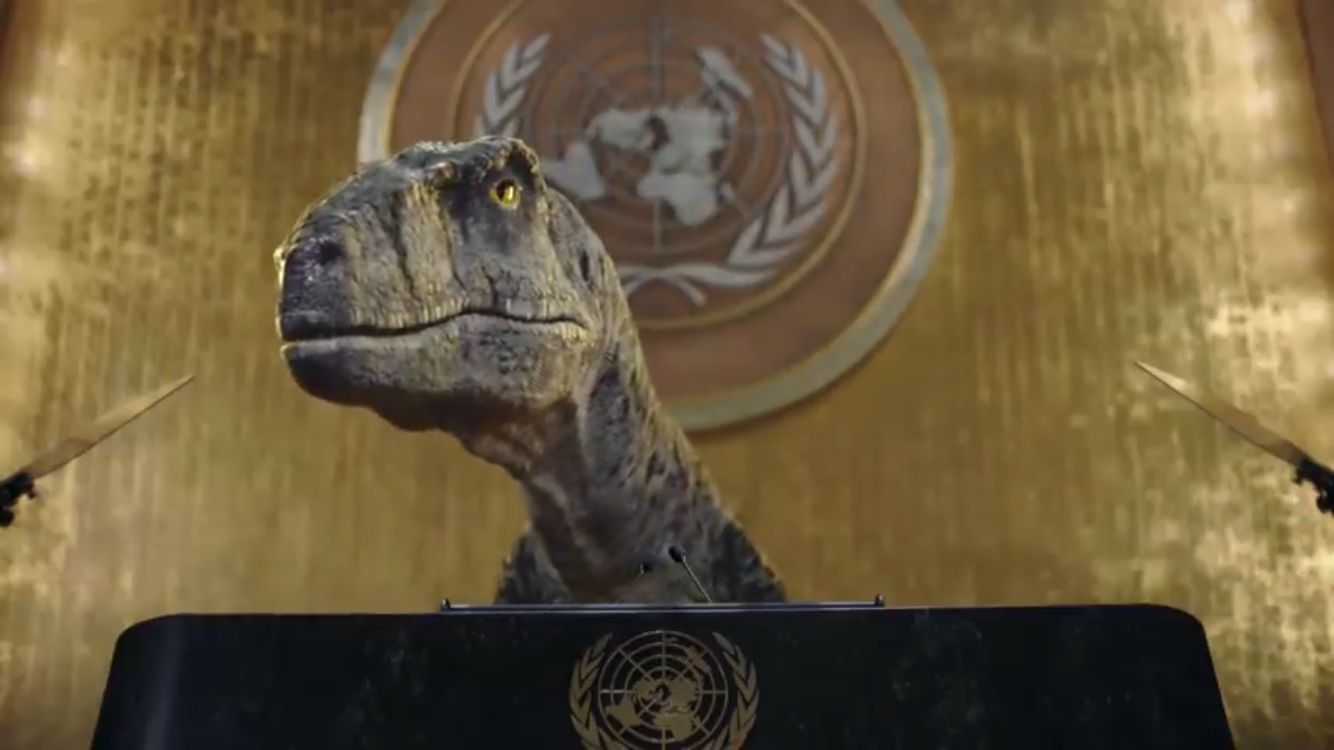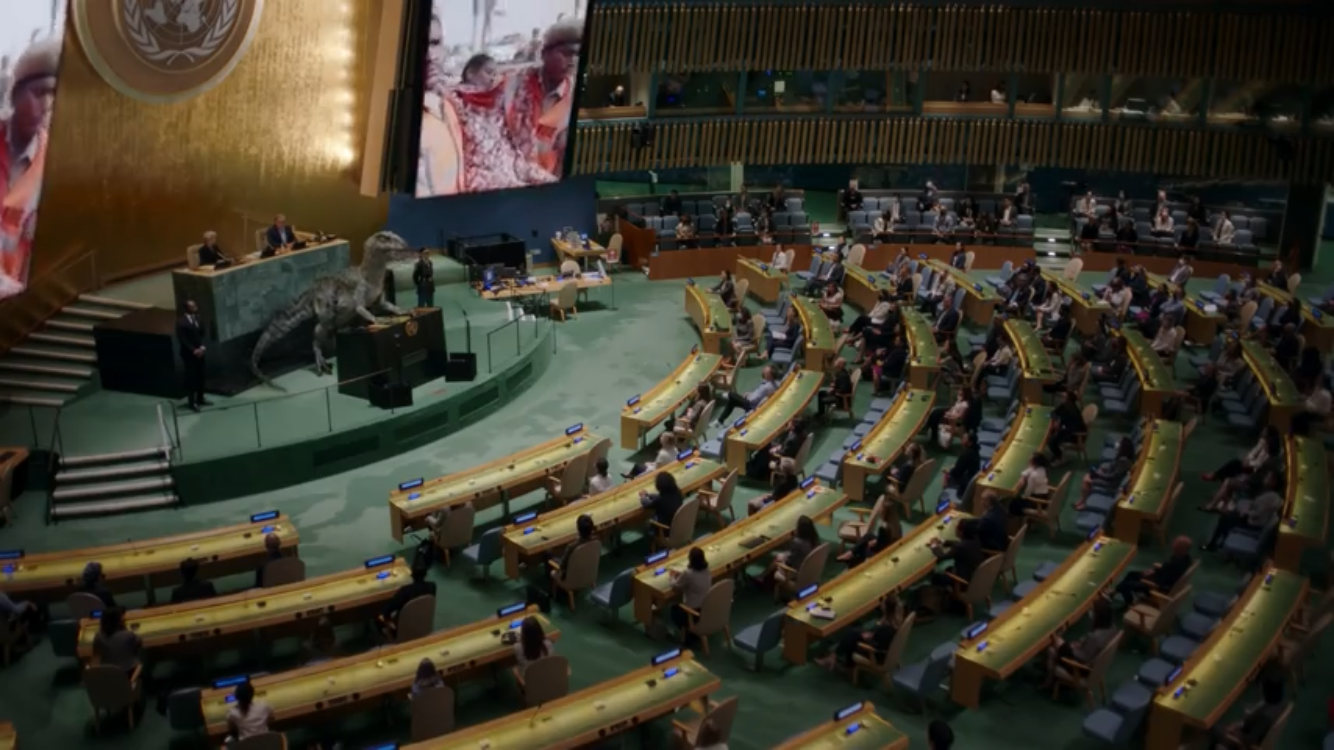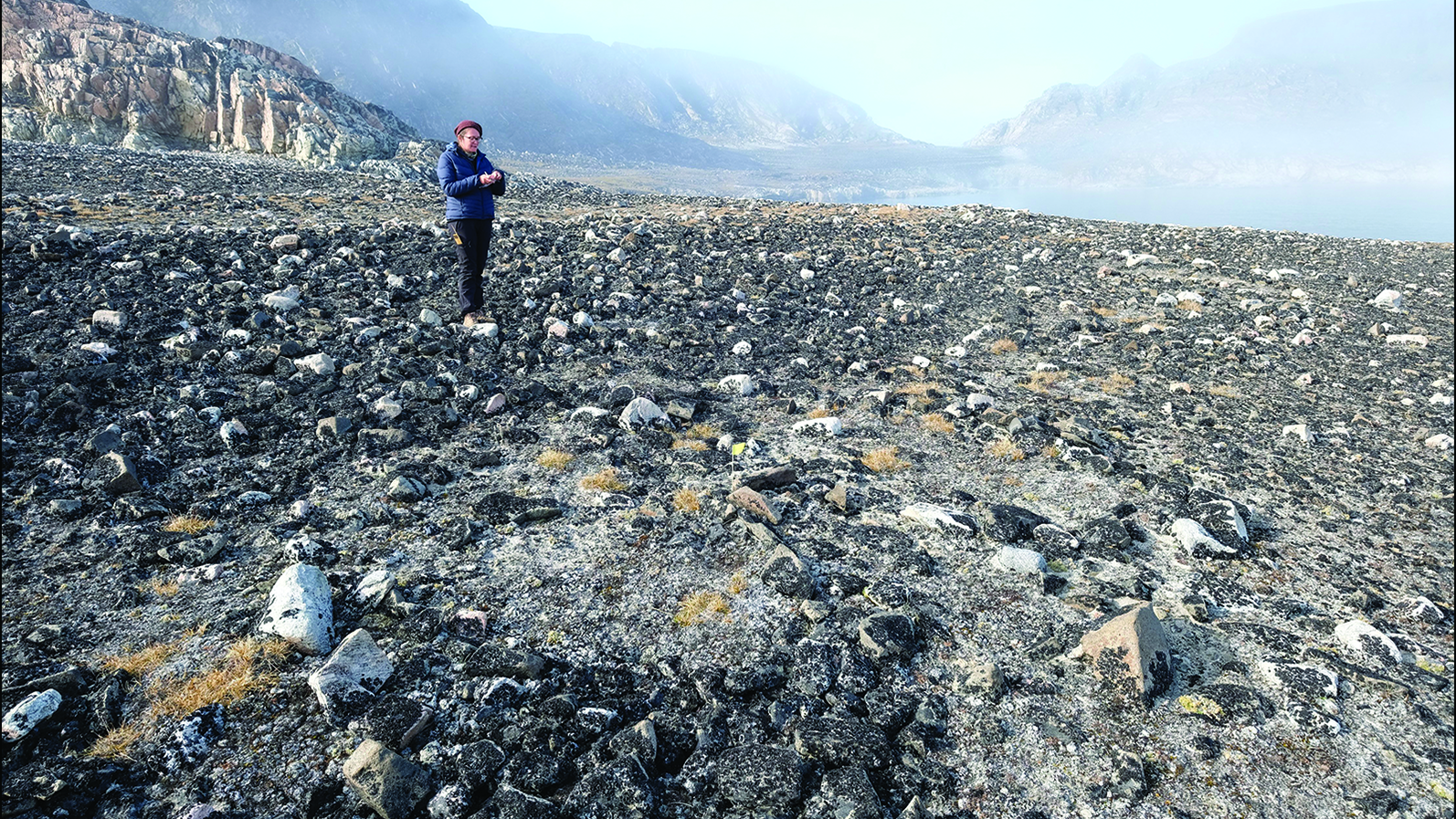Talking dinosaur invades UN to give climate change speech in bizarre, yet brilliant, new video
"Don't choose extinction," warns the CGI creature.
Get the world’s most fascinating discoveries delivered straight to your inbox.
You are now subscribed
Your newsletter sign-up was successful
Want to add more newsletters?

Delivered Daily
Daily Newsletter
Sign up for the latest discoveries, groundbreaking research and fascinating breakthroughs that impact you and the wider world direct to your inbox.

Once a week
Life's Little Mysteries
Feed your curiosity with an exclusive mystery every week, solved with science and delivered direct to your inbox before it's seen anywhere else.

Once a week
How It Works
Sign up to our free science & technology newsletter for your weekly fix of fascinating articles, quick quizzes, amazing images, and more

Delivered daily
Space.com Newsletter
Breaking space news, the latest updates on rocket launches, skywatching events and more!

Once a month
Watch This Space
Sign up to our monthly entertainment newsletter to keep up with all our coverage of the latest sci-fi and space movies, tv shows, games and books.

Once a week
Night Sky This Week
Discover this week's must-see night sky events, moon phases, and stunning astrophotos. Sign up for our skywatching newsletter and explore the universe with us!
Join the club
Get full access to premium articles, exclusive features and a growing list of member rewards.
A talking CGI dinosaur just gave an impassioned speech about climate change to world leaders in a new UN video. Will they take it seriously?
The dinosaur, named Frankie according to its Twitter page, bears a strong resemblance to the velociraptors from the film "Jurassic World" and is voiced by multiple celebrities in different languages, including film star and musician Jack Black in English and other stars like Game of Thrones' Nikolaj Coster-Waldau in Danish.
The video starts with the CGI creature strolling into the U.S. General Assembly in New York to the surprise of delegates inside. After a comedic interaction with a security guard, the dinosaur grabs the microphone and delivers a surprisingly astute speech about the looming climate emergency, warning humanity to not "choose extinction" and telling humans to "save our species."
Related: 10 signs that Earth's climate is off the rails
"I know a thing or two about extinction, and let me tell you, and you'd kind of think this would be obvious, going extinct is a bad thing," the dinosaur says in the video. "At least we had an asteroid, what's your excuse?"
The key message delivered by the extinct emissary is that government fossil fuel subsidies must be cut in order to reduce greenhouse emissions and save our planet, which will be a key topic at the upcoming COP26 conference on climate change being held in the United Kingdom.
"You're headed for a climate disaster, and yet every year governments spend hundreds of billions of public funds on fossil fuel subsidies," the dinosaur says. "Imagine if we had spent hundreds of billions of dollars per year subsidizing giant meteors," he added. "That's what you're doing right now."
Get the world’s most fascinating discoveries delivered straight to your inbox.
A new report on fossil fuel subsidies released Oct. 26 by the United Nations Development Programme (UNDP), which released the Cretaceous-beast video, revealed that world governments spend $423 billion annually to prop up fossil fuel companies. This would pay for every person on the planet to be vaccinated against COVID-19, according to a UNDP statement.
"Getting rid of fossil fuel subsidies is an important component of any comprehensive climate solution," Michael Mann, a climatologist at The Pennsylvania State University and leading climate change communicator, told Live Science. However, Mann also believes that the climate crisis cannot be avoided by focusing solely on fossil fuel subsidies.
"The priority should be on cutting emissions. Getting rid of fossil fuel subsidies is one piece of that. But so are incentives for renewables and carbon pricing," Mann said. "I wouldn't want to put the onus on any of these mechanisms. We need them all," he added.
The video also highlights the opportunity that the COVID-19 pandemic has given humanity to make significant changes. "You've got a huge opportunity right now, as you rebuild your economies and bounce back from this pandemic," the dinosaur said. "This is humanity's big chance."
Although it is undoubtedly surreal and somewhat amusing to watch a celebrity-voiced CGI dinosaur talk about climate change, there is also something unusually enthralling and unexpectedly poignant about the idea of an extinct species warning you about your own demise.
"It's not the first time that the extinction of the dinosaurs has been employed in popular culture to raise awareness about the threat posed to us as a species from environmental degradation," Mann said. And this video has the potential to be very effective, he added.
The video was released Oct. 27 across all UNDP social media platforms.
Originally published on Live Science.

Harry is a U.K.-based senior staff writer at Live Science. He studied marine biology at the University of Exeter before training to become a journalist. He covers a wide range of topics including space exploration, planetary science, space weather, climate change, animal behavior and paleontology. His recent work on the solar maximum won "best space submission" at the 2024 Aerospace Media Awards and was shortlisted in the "top scoop" category at the NCTJ Awards for Excellence in 2023. He also writes Live Science's weekly Earth from space series.
 Live Science Plus
Live Science Plus













